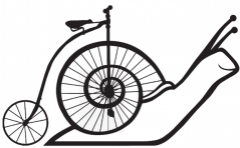The good news: On Friday, Mark received a priority package in the mail: his visa arrived from the French Consulate in San Francisco!

The bad news: And a few hours later, Mark received a call from his doctor telling him he has thyroid cancer. Talk about knocking the wind out of our sails! It felt like a punch in the stomach.
The good news: He has the most common type of thyroid cancer, which is very slow growing and also very treatable.
The bad news: If Mark pursues standard treatment (surgery to remove the thyroid, usually followed by radioactive iodine treatment), we’ll have to cancel our trip and hope to try again in a year.
The good news: This type of cancer is so slow growing that some of the members of a support group for thyroid cancer that we attended on Saturday are encouraging Mark to look into taking the trip as planned and treating afterwards.
“Wait and see” and “cancer treatment” may sound mutually exclusive, but studies are showing that we over-diagnose and over-treat thyroid cancer. That is, we’re finding more and more thyroid cancers because we’re looking for them, yet aggressive treatment is not resulting in any fewer deaths by thyroid cancer. So, that means we’re treating a number of thyroid cancers that would never have killed the patient to begin with.
How do we know which thyroid cancer will kill you if left untreated and which won’t? Ah, therein lies the rub. We can’t. At best, we can only know probabilities. But even if the risk of death is only 1%, you can’t possibly know if you’re in the 99% majority or that fatal 1%.
What we do know with absolute certainty is that treatment (starting with removing the thyroid), will cause Mark to suffer the lifelong consequences and side effects of not having a thyroid, which is the gland that manages the body’s metabolism.
At this point, we don’t know enough about Mark’s cancer to make an educated decision about waiting to treat, but we are going to carefully explore that option before charging into surgery.

